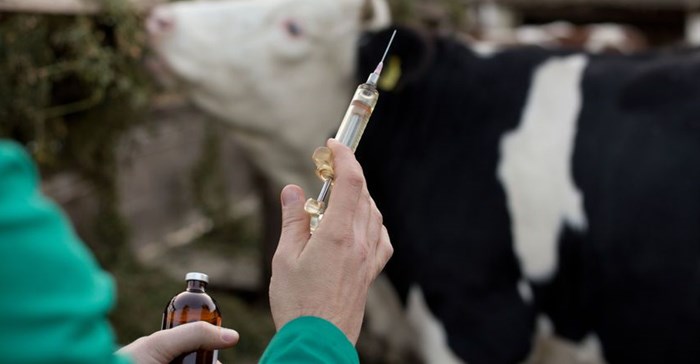
Top stories






More news

Marketing & Media
Ads are coming to AI. Does that really have to be such a bad thing?















According to FAO director-general, Jose Graziano da Silva: "There is an urgent need to stop the improper use of antimicrobials in animal rearing". He refers specifically to the role that injudicious use of antibiotics plays in the rise of dangerous antimicrobial-resistant organisms.
"For the livestock sector to play the pivotal role it can and should in global sustainable and safe food production, antibiotics have to return to their proper place in the disease management matrix."
"The shotgun approach to the use of antibiotics, aggravated by incorrect dosages and inappropriate application, is costing us dearly," says Du Preez. "Bacteria develop resistance to the synthetic remedies designed to kill them, especially when they are unnecessarily exposed to these products over long periods of time at relatively low dosages, as sometimes happens in the food production industry."
We will always need antibiotics, but it has to be the treatment of last resort. The blanket prophylactic use of antibiotics must be phased out; it should be used exclusively to treat diseases.
He states that antibiotics should only be given to specific animals for specific diseases, and only once the evidence justifies the use. "We will always need antibiotics, but it has to be the treatment of last resort. The blanket prophylactic use of antibiotics must be phased out; it should be used exclusively to treat diseases."
The use of antibiotics as a preventative measure is particularly prevalent in the intensive farming of cattle, sheep, chickens and the like. "It has to stop," says Du Preez. "Farmers have to revert to good management practices and best-practice biosecurity measures to manage their operations, regardless of size."
Increased biosecurity and hygiene around animal rearing, such as the use of foot baths and clean over clothes for animal handlers and strict access control measures.
• A return to vaccination as the preferred preventative action, supported by the development of new and improved vaccines.
• A focus on feeding and nutrients, including probiotics, to stimulate and modulate animals’ immune systems to render them more robust.
• Once an animal’s microbiome is in balance and functioning optimally, the immune system follows suit.
Returning to the notion of evidence-based medicine, Du Preez advocates for a far closer working relationship between farmers, their herdsmen, veterinarians and animal health technicians. The aim is to identify disease as soon as possible so that it can be treated before it spreads.
Such identification should be done through clinical examinations or post mortems – both involving the analysis of biological samples. Proper observation and examination of herds fostered through proper training of those who are the first line of defence against disease, viz. the herdsmen and farmers is the foundation of any plan and structure. Armed with evidence-based information, veterinary professionals can then treat the affected animals with antibiotics, and advise farmers on the vaccines and/or nutritional interventions needed to keep the rest of a herd or flock healthy.
Du Preez appreciates the magnitude of the task at hand. He acknowledges that in many cases farmers are unaware of preventative measures and that emerging farmers in particular regard antibiotics as a magic remedy. "Companies like ours have a massive training and education job ahead of us," he says.
When it comes to the bigger producers, however, he feels that the consumers of meat have a significant role to play. "Consumers are becoming more aware of the adverse impact the injudicious use of some animal antibiotics has on human health. They have a responsibility to make their voices heard and encourage those large commercial farmers who may not follow the protocols proposed, to mend their ways.
"In addition, the government has little choice but to step up its residue monitoring and enforcement efforts in the light of international trade agreements. Failure will result in a ban on South African meat exports."
"It is clear that there is much to gain from changing our antibiotics ways – almost as much as we stand to lose by not taking action now," concludes Du Preez.